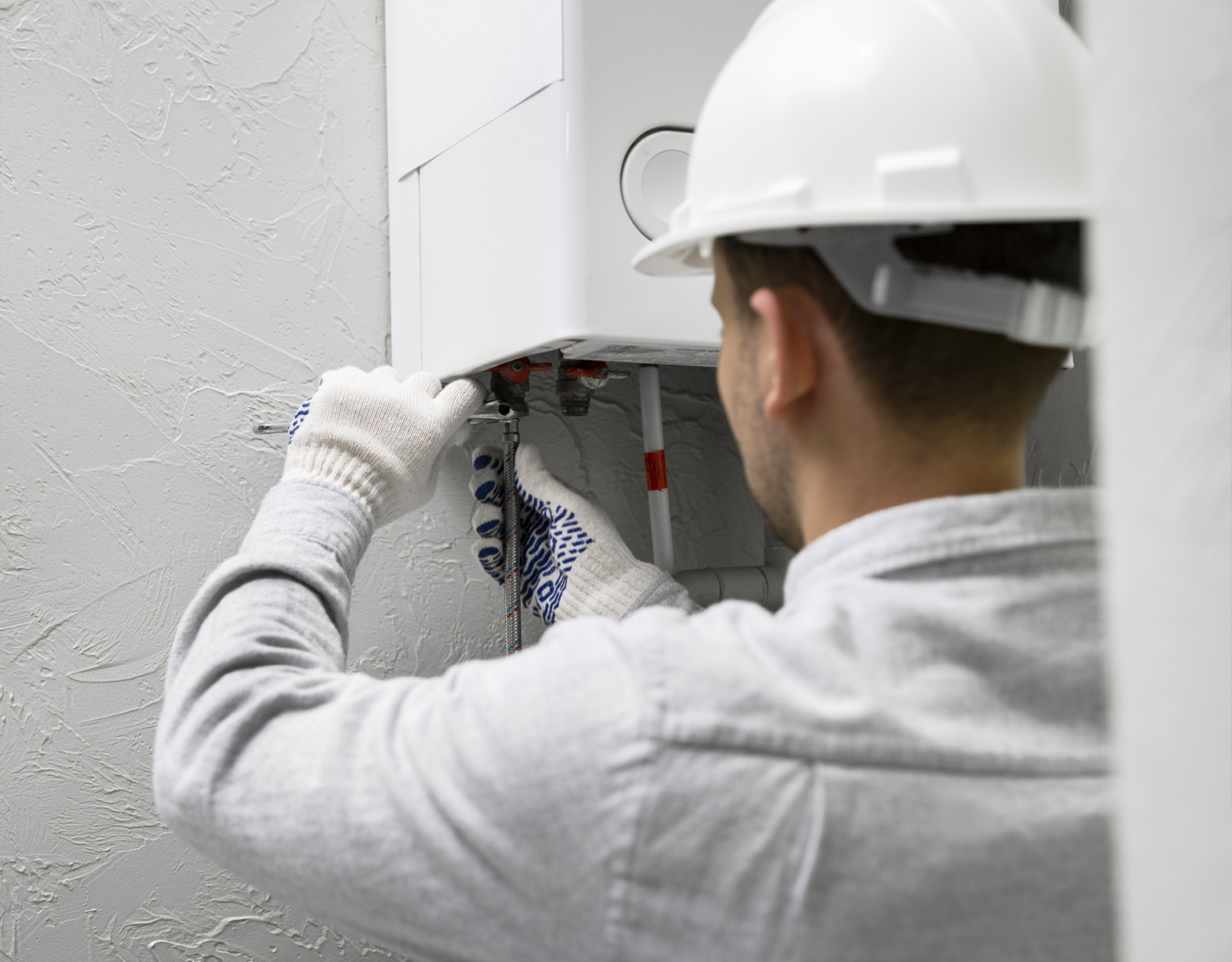
Tank vs Tankless Water Heaters: Which Is Right for Your Stafford Home
Introduction
When it’s time to replace your water heater in Stafford, one of the first decisions you’ll face is whether to choose a traditional tank water heater or a modern tankless (on-demand) system. Both options have benefits, drawbacks, and different costs — and the right choice depends on your home, your hot water usage, and your budget.
This guide explains how each type of water heater works, compares them side by side, and helps you decide which one fits your needs.
How Tank and Tankless Water Heaters Work
Understanding how each water heater type functions will make the comparison much clearer.
Tank water heaters store 30–60+ gallons of water in an insulated tank. The water is heated continuously and kept hot until it is used. This means hot water is always available, but it also means the system uses energy even when you aren’t using hot water.
Tankless water heaters heat water only when you turn on a faucet. Cold water passes through a heat exchanger and is heated instantly, delivering hot water on demand. They avoid standby energy loss but may have a slight delay before hot water reaches your tap.
Key Factors to Consider Before Choosing
Before deciding which system is right for your Stafford home, evaluate the following points.
Hot Water Demand and Household Size
Consider how much hot water your household uses and how often multiple fixtures run at the same time. Large families or homes with several bathrooms may need a large-capacity tank or a high-flow tankless system. Smaller households can often benefit from a single tankless unit’s efficiency.
Upfront Cost vs Long-Term Savings
Tank water heaters generally cost less to purchase and install. Tankless systems have a higher upfront price, and installation may require upgrades like new venting or gas line work. However, tankless units can reduce monthly energy bills over time, which may offset the initial investment.
Energy Efficiency and Utility Costs
Tankless systems are more energy-efficient because they avoid standby losses. This is especially helpful if you use moderate amounts of hot water daily. Tank models continuously keep water hot, which wastes some energy.
Space and Installation Requirements
Tank heaters need floor space for a large cylinder. Tankless units are wall-mounted and save space, making them ideal for smaller homes or homes with limited utility room space. Keep in mind that tankless installation may involve more complex work, which adds cost.
Lifespan and Maintenance
Tank water heaters typically last 8–12 years with proper maintenance. Tankless water heaters can last 20 years or longer if they are serviced regularly. Tank systems may need flushing to remove sediment, while tankless systems require periodic descaling to keep the heat exchanger running efficiently.
Pros and Cons Summary
Here is a quick comparison to help you decide.
Tank Water Heater
Lower upfront cost
Simpler installation
Provides stored supply for simultaneous use
Shorter lifespan and higher energy use
Tankless Water Heater
Higher upfront cost
More complex installation
Endless hot water and higher efficiency
Longer lifespan and potential long-term savings
Frequently Asked Questions
What size water heater do I need?
The right size depends on your household’s hot water usage, number of bathrooms, and how many fixtures run at once.
Does tankless always save money?
Not always. Tankless systems are more efficient but may take years to pay off depending on your usage and installation costs.
Which is better for large families?
A properly sized tank system or multiple tankless units may be needed for heavy, simultaneous use.
Do tankless water heaters work well in winter?
Yes, but they may need to work harder in cold weather to raise water temperature quickly. Choosing the right capacity is key.
What maintenance do they need?
Tank systems need occasional flushing to prevent sediment buildup. Tankless systems need periodic descaling and filter cleaning.
Conclusion
Both tank and tankless water heaters can be excellent solutions depending on your budget, space, and hot water needs. Tank units are cost-effective and reliable, while tankless systems offer energy efficiency and endless hot water. The rig